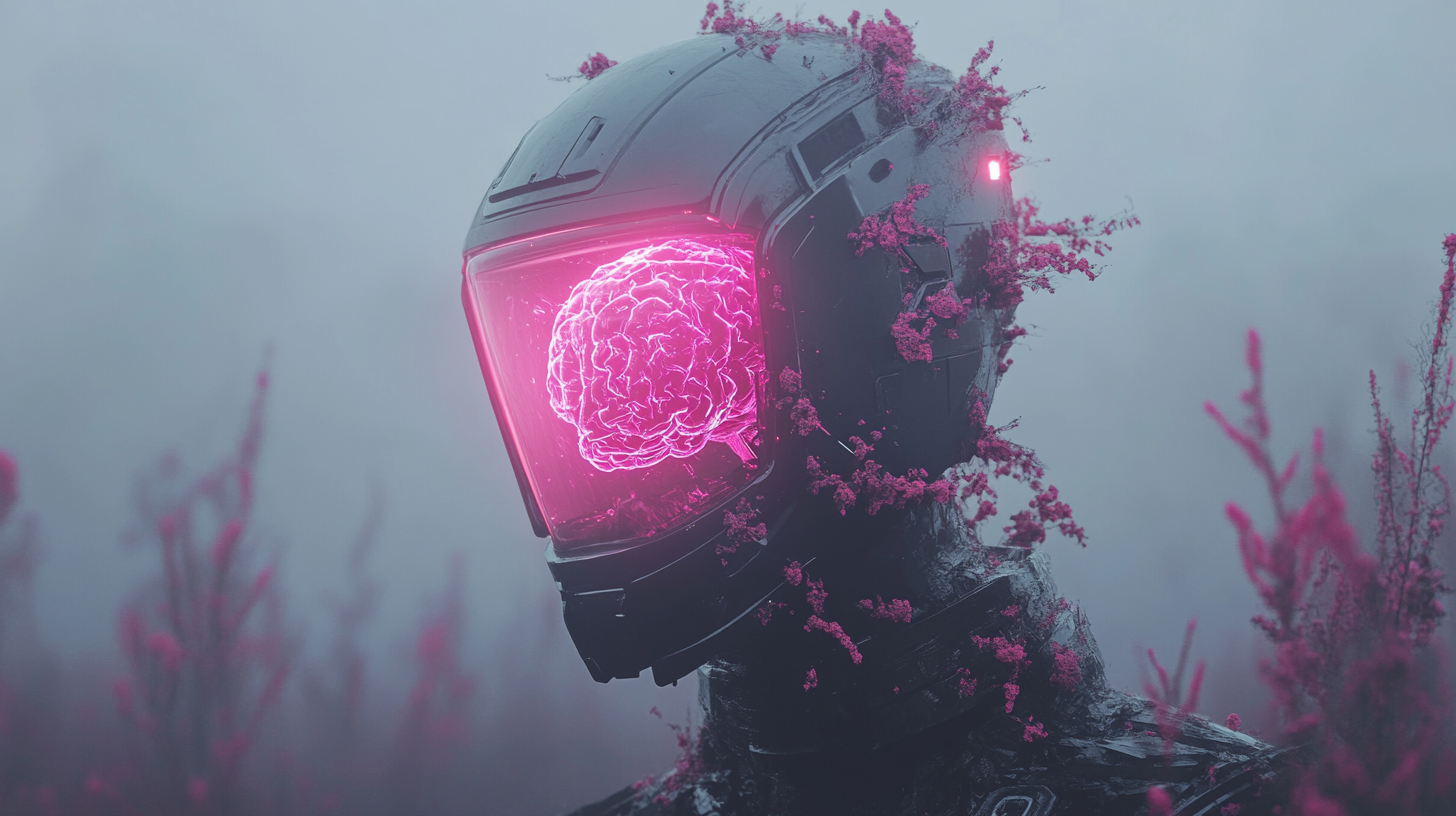Imagine a world where AI is directly linked to our minds, where our emotions and thoughts can be controlled through advanced technologies, while traditional currencies are replaced by digital currencies fully managed by intelligent systems. This future seems like a scene from a science fiction movie, but it is becoming an imminent reality. The key question here: What will happen to humans in this world? Will we still be needed, or will AI completely upend everything?
1. Full Control of the Mind: From Fiction to Reality
The idea of controlling the mind is no longer just fiction. Elon Musk and his company Neuralink have made significant strides in developing devices capable of directly interacting with brain cells. Neuralink’s devices can read and process brain signals, opening the door to unprecedented interaction between humans and machines. As these technologies advance, it becomes possible to imagine a future where emotions and thoughts can be controlled without the need for complex surgeries.
But the terrifying question is: If companies or governments own this technology, will our free will remain intact? What if our emotions are manipulated for commercial or political purposes? Technology like this could make us vulnerable to psychological manipulation, changing our beliefs and behaviors without us realizing it.
2. Will We Still Need Workers in This Future?
With the progress of AI, it is becoming possible to do without many human jobs. Today, companies rely on AI not only to improve productivity but also to make administrative decisions, develop creative ideas, and even manage large-scale projects. Currently, many projects that generate billions of dollars rely entirely on AI and digital currencies. These technologies are not just tools but have become an essential part of the business ecosystem.
Does this mean that human workers will become unnecessary? Over time, the need for human labor may diminish. AI can perform tasks faster and more accurately and doesn’t require rest or wages. The result? Millions of humans may find themselves out of the job market, raising frightening questions about their future.
3. Digital Currencies: Towards a Cashless Economy
In recent years, many countries have adopted digital currencies as an official means of payment. Countries like El Salvador have officially recognized Bitcoin as legal tender, and the acceptance of digital currencies is growing globally. This shift is not just a way to improve financial transactions but is part of a broader economic revolution that relies on AI.
Digital currencies, thanks to blockchain technologies, provide security and transparency in transactions, but at the same time, they open the door to close monitoring of every financial operation. When currencies are managed through AI systems, we may lose control over our financial privacy. The real fear here is that these systems could be used to control our financial and social behavior by imposing restrictions on how we spend our money or even freezing our accounts when needed.
4. Mind Control: Developments from Other Companies
Neuralink isn’t the only company working on brain interaction technologies. Companies like Kernel and Neurable are also developing devices that can read and analyze neural waves to control surrounding technology. These devices may be used to enhance mental capacities or even improve our mood, but they could also become dangerous tools if misused.
Imagine a world where AI can manipulate our memories or even create new ones. We may not be able to distinguish between what is real and what is artificial, leading to a loss of identity and self-awareness. This technology opens the door to a future full of ambiguity and deep ethical questions.
5. Do We Need All These Humans?
In a world increasingly dependent on AI and advanced technology, it might seem that humanity has surpassed the need for a large workforce. With the rise of automation and the decreasing need for human intervention in many fields, will there still be a place for all these people in the economic and social system? In this worrying future, governments and companies may find themselves considering population reduction, whether through social policies that limit reproduction or even through technologies that control fertility.
6. Manipulating Memories and Emotions: Will Our Identity Still Be Ours?
If AI can interact with brain cells to alter our emotions and memories, what would stop it from being used to control our identity? It might become possible to modify or delete entire life experiences or even create new memories that suit the agendas of companies or governments. In this dark future, we could find ourselves in a society living in a "synthetic reality," where we can no longer trust our own thoughts or feelings.
In Conclusion: Is This Future Worth the Risk?
While these technologies offer amazing promises in terms of efficiency and convenience, the risks they pose may outweigh the benefits. AI, digital currencies, and brain interaction technologies could change the world in ways we never imagined. But if we’re not careful, we might find ourselves in a world where AI controls every aspect of our lives, from financial decisions to emotions and thoughts.
